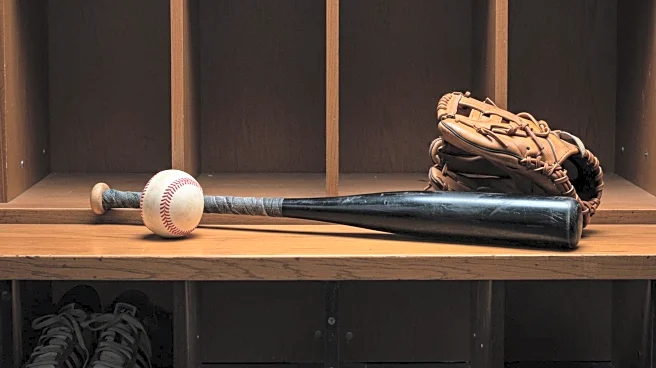What's Happening?
The Arizona Diamondbacks are reportedly open to trading their All-Star second baseman, Ketel Marte, during the upcoming offseason. This decision comes as the team plans to reduce payroll and address internal issues. Marte, despite being one of the most productive hitters in baseball, is viewed as a 'diva' in the clubhouse, causing agitation among teammates and coaching staff. Reports indicate that some players are frustrated with Marte's frequent absences due to injuries and personal matters, including a recent burglary at his home. These tensions have been linked to the team's performance struggles, particularly during critical moments in the season.
Why It's Important?
The potential trade of Ketel Marte could significantly impact the Diamondbacks' roster and their future performance. Marte's productivity on the field is undeniable, with impressive stats that contribute to the team's offensive capabilities. However, his perceived attitude and absences have reportedly affected team morale and cohesion. Trading Marte could alleviate these internal issues but also risk losing a key player. The decision reflects broader challenges in balancing player talent with team dynamics, a common issue in professional sports. The outcome of this trade could influence the Diamondbacks' strategy and competitiveness in the league.
What's Next?
If the Diamondbacks proceed with trading Marte, they will need to ensure they receive fair value in return, considering his high performance and upcoming full no-trade rights. The team's front office will likely explore offers that align with their financial goals and team needs. Meanwhile, other MLB teams may express interest in acquiring Marte, given his skills and potential to enhance their lineups. The offseason will be crucial for the Diamondbacks as they navigate these negotiations and aim to rebuild their team dynamics and performance.
Beyond the Headlines
The situation with Ketel Marte highlights the complex relationship between player conduct and team success. It raises questions about how personal issues and perceived attitudes can influence professional environments, particularly in sports. The Diamondbacks' handling of this situation may set precedents for how teams address similar challenges in the future, balancing player management with maintaining a cohesive and motivated team.









